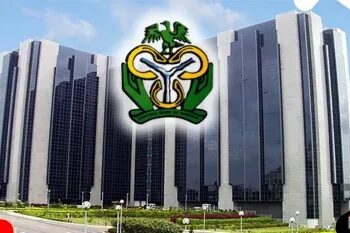The recent revocation of the license of Heritage Bank, has once again brought to fore the importance of the Nigeria Deposit Insurance Corporation (NDIC) as it plans to commence the payment of insured deposits this week.
NDIC managing director, Bello Hassan, had disclosed the total bank deposits at Heritage Bank stand at N650 billion, while the bank’s loan portfolio exceeds N700 billion. The NDIC is committed to ensuring the repayment of loans within the next six months, he added.
According to him, all depositors are currently being verified for onward payment of insured benefits up to N5 million. Depositors with balances exceeding N5 million will be compensated following the sale of the bank’s assets.
The NDIC estimates that Heritage Bank has approximately 2.3 million depositors, with 99 per cent of them holding balances below N5 million. The bank has around 116 branches across Nigeria. This development comes as a relief to the customers of Heritage Bank, who have been in limbo since the Central Bank of Nigeria (CBN) revoked the bank’s license.
The NDIC’s assurance of prompt payment to depositors aims to restore confidence and provide relief to those affected by the bank’s liquidation.
These disbursements show the significance of deposit insurance to financial stability and retention of confidence in the Nigerian banking system. While bank failures and cases of distressed bank is no longer as prevalent as it used to be, protection of depositors remains a crucial part of ensuring financial stability.
If depositors are not sure that they will be able to recover their funds in a case where a financial institution suddenly closes, there is a high probability that they would rather hold onto their funds than give it to a bank for safe keeping.
Providing this part of safety-net for depositors was the crux of creating deposit insurance institutions across the world. A Deposit Insurance Scheme (DIS) is a financial guarantee to depositors in the event of a bank failure.
Deposit insurance is a depositor protection scheme usually supported by insured institutions themselves and administered either through a government-controlled agency; a privately held one or one that is jointly owned and administered.
DIS are in existence with specific objective some of which include provision of deposit protection, contribution to financial stability, dealing with problem financial institutions, contributing to an orderly payments system, promoting competition in deposit-taking institutions, encouraging economic growth amongst others.
Deposit insurance schemes are different from conventional insurance. While a conventional insurance policy is designed only to protect the micro interest of the policyholder, a DIS is a regulatory tool aimed at ensuring the safety, soundness and stability of a nation’s financial system, thereby protecting the macro-economy at large.
Also, where the beneficiary, who is the insured, pays the premium under a conventional insurance, under a DIS, the insured institution pays the premium while the beneficiary of the protection offered is the depositor who does not pay any premium. While best practice indicates that participation in DIS be compulsory, it is a voluntary option under the conventional insurance.
In Nigeria, depositors’ funds are insured by the Nigeria Deposit Insurance Corporation (NDIC) which was established in 1988 through the promulgation of Decree No.22 of 15 of June 1988 as part of economic reform taken by the government to strengthen the safety-net for the banking sector.
The mandate of the NDIC includes the coverage of all deposit liabilities in Deposit Money Banks (DMBs, including Non-Interest Banks), Microfinance Banks (MFBs) and Primary Mortgage Banks (PMBs), Mobile Money Operators (MMOs).
The corporation is also saddled with the adoption of differential premium assessment system to encourage effective risk management system in banks as well as insurance coverage which guarantee payment of up to N500,000.00 and N200,000 to depositors of for DMBs/PMBs and MFBs respectively in the event of bank failure.
Asides these, it also implements the pass-through deposit insurance for the subscribers of mobile money operators (N500, 000 Coverage per subscriber of MMOs). Alongside these, the NDIC also participates in other safety-net policies which include on-site examination and off-site surveillance of licensed deposit-taking financial institutions to ensure safety, soundness and stability of the banking system.
It also Risk-Based Supervision in collaboration with the CBN to ensure effective risk management in banks and promote stability and ensures zero tolerance for unethical practices in insured financial institutions in the interest of depositors thereby promoting safe and sound banking practices.
According to Section 10 (1) of the NDIC Act No. 16, 2006, funding sources of the corporation include premium contribution by participating institutions, income from the investment of the Corporation, monies borrowing from any sources with the approval of the Board and monies from any other sources as may be approved by the Corporation.
As contained in Section 17 (5) of the NDIC Act No. 16, 2006. If supplementary funding is required, NDIC has the authority to ask participating institutions to pay special contribution out of it profit before tax, a sum equal to its annual premium or such other sum as the Board may require not exceeding 200 per cent of its annual premium on such terms and conditions as the Board may from time to time determine.
Deposit Insurance Strengthening Banking Industry Confidence
ANOTHER GOOD READ
Most Recent
Where Is The Fighting Ground Of Fintech Firms?
July 14, 2025
FIFA Opens Office In Trump Tower
July 14, 2025
Driving Aviation Growth Through Regional Collaboration
July 14, 2025
















Between Depleting Workforce And Declining Productivity